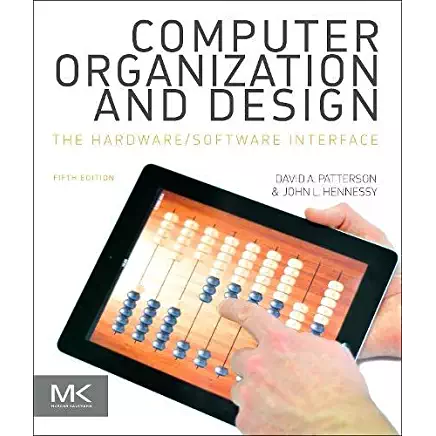Syllabus
Course Description
This course covers the design of complex computer systems making heavy use of the components and techniques discussed in CMSC 313, CMPE 212 and CMPE 310. All parts of the computer system - CPU, memory and input/output - are discussed in detail. Topics include information representation, floating-point arithmetic, instructions set design issues (RISC vs. CISC), microprogrammed control, hardwired control, pipelining, memory cashes, bus control and timing, input/output mechanism and issues in the construction of parallel processors.
Prerequisites
You must have completed CMSC 313 or CMPE 212 and CMPE 310 with a grade of C or better.
Required Textbook
 |
Computer Organization and Design, The hardware/software interface,
MIPS Edition;
5th ed. David A. Patterson and John L. Hennessy. Morgan Kaufmann Publishers, ISBN 978-0-12-407726-3. |
Lectures and Readings
You are expected to attend all lectures for this course. Although all sections will cover the same general topics, you are responsible for the specifics given during your section.
You are responsible for all material covered in class, even if not found in the on-line class presentation materials. If you should happen to miss a class, you are responsible for getting any missed notes or announcements from a classmate.
You are required to prepare for each class by having read all of the assigned materials beforehand. Even though it sounds childish, the professor is not above giving a pop quiz if he has started to feel depressed about the level of preparedness among the students.
Schedule
The online schedule includes lecture topics/notes, reading assignments, midterm and final exam dates, and homework and project due dates. Except for the final exam date, the remainder of the timeline should be considered somewhat fluid in order to allow us to adapt to any unanticipated events. The specific dates will become much more firm as we get closer to the relevant time period.
Grading
Your grade in this course is based on exams, homework assignments, and projects, as follows (we might revise this slightly in the first week of the course):
| Item | Weight |
|---|---|
| Midterm Exam | 20% |
| Comprehensive Final Exam | 30% |
| Homework Assignments | 20% |
| Project(s) | 30% |
Your final letter grade is based on the standard formula:
0 ≤ F < 60, 60 ≤ D < 70, 70 ≤ C < 80, 80 ≤ B < 90, 90 ≤ A ≤ 100
Depending upon the final distribution of grades in the class, there may be a curve in your favor, but under no circumstances will grades be curved downward.
Your grade is given for work done during the semester; incomplete grades will only be given for medical illness or other dire circumstances.
Due Dates
All homeworks and projects will be posted with a due date; the assignment will be due before 9:00:00pm that day. Late assignments will not be accepted.
Exams
There will be two (2) exams — a midterm and a comprehensive final exam. Exams during the semester must be taken with your lecture section. Make-ups for exams are given under only the most dire circumstances (such as hospitalization).
A picture ID is required to take/hand-in the exam.
Academic Conduct Policies
Academic integrity is an important value at UMBC. By enrolling in this course, each student assumes the responsibilities of an active participant in UMBC’s scholarly community in which everyone’s academic work and behavior are held to the highest standards of honesty. Cheating, fabrication, plagiarism, and helping others to commit these acts are all forms of academic dishonesty, and they are wrong. Academic misconduct could result in disciplinary action that may include, but is not limited to, suspension or dismissal.
Copying or cheating will result in the greater of: a zero on the assignment or exam; or a full letter reduction on the final grade. A second infraction will result in a grade of F for the semester.
The UMBC Undergraduate Student Academic Conduct Policy is available at: https://oue.umbc.edu/ai/